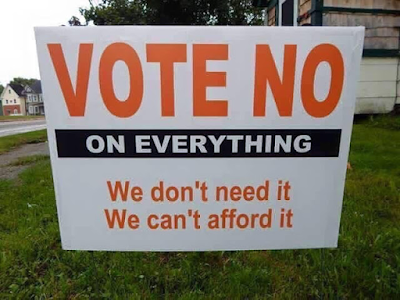I note that there's a push to get a
prison reform bill through Congress by the end of the year. I'll be the first to applaud if they can produce a workable solution to the present problems in the prison system: but I think they're starting from the wrong end. The problem isn't so much prisons as what happens to criminals before they get there.
I've written at some length about it in my memoir of prison chaplaincy.
For those who haven't read the book, here are a few important points (out of many) for consideration.
First, the present justice system does almost nothing to deter youth crime, and punishments amount to little more than a slap on the wrist. Young criminals get used to "getting away with it", and grow up with the impression that they can do almost anything, and not be punished. However, the instant they can be tried as adults for the same crime(s), the boom comes down on them. I've lost count of the number of furiously angry felons who complained to me that they committed crimes for years without serious punishment, and then, in some arbitrary and capricious fashion, "the system" or "the man" nailed them for a five-to-ten stretch for doing
exactly the same thing. They couldn't understand that (in part because the so-called "education" system had failed to educate them at all), and were bitter and hate-filled as a result. It was perfectly obvious that they'd failed to learn anything in prison, except better criminal skills from their fellow convicts.
Second, the methods and practices of incarceration have to be improved. Other societies imprison a vastly smaller proportion of their population, and have a much lower recidivism rate (i.e. the rate at which a criminal re-offends after release) than ours. For the past few decades, the US recidivism rate has been about 70% over five years. In other words, seven out of ten criminals released from our prisons will have committed more crimes (sometimes a
lot more crimes) by that time. That demonstrates individual tendencies, to be sure, but it also demonstrates that rehabilitation programs in prison are so much hot air. We have to find a better way to help inmates change. Some won't, of course; but others will, if they're given sufficient incentive to want to change. It takes the carrot as well as the stick.
Third, there needs to be a mechanism in the justice system whereby those who supervise criminals in prison can monitor their behavior, record (objectively and fairly) their progress (if any), and go back to court if necessary to inform a judge that the felon in question has been a hard-case behind bars, has not shown any improvement, and/or has refused to participate meaningfully in rehabilitation programs. He's therefore considered likely to re-offend, and should thus continue to be incarcerated until he
does show progress. That won't stop all recidivism, but it should go a long way towards reducing it. Civil libertarians will bleat that this is unfair to the prisoner. My response is, what about the victims of the crimes he's very (
very!) likely to commit once he's out? Don't they deserve the "fairness" of being protected from that risk?
Fourth, we have to reform the system of trial and sentencing. Right now, a vast number of people are caught up in a judicial "sausage machine", processed from one end to the other without any meaningful consideration as to whether they belong there. Plea bargains are common; a truly dangerous criminal might plead down a serious assault that left his victim in hospital, perhaps even crippled for life, to a simple assault charge, because it's simply too much hassle for the overworked, overloaded District Attorney's office to line up witnesses, try the case, and get a more appropriate punishment. The DA needs to use his limited staff and resources to cover far too many cases, so he'll take a plea deal that doesn't punish the criminal as he or she deserves, simply in order to free up his resources to work on other cases.
About 95% of all felony charges in the USA end up in plea bargains like this. That's not "justice" at all - that's gaming the system.
Fifth, criminal laws have to be reformed too. In many cases, legislatures pass laws inflicting harsh punishment for certain crimes on the basis of emotion or knee-jerk reaction, rather than logic. (Example: until very recently, dealing in crack cocaine rocks drew a much heavier prison sentence than dealing in cocaine powder, even though the drug in both cases was
exactly the same.) Many crimes are classified as felonies when they should, in fact, be only misdemeanors. The laws are tweaked to produce the result lawmakers and/or their electorates want, without stopping to ask whether or not that's been effective in the past, and whether or not it's likely to be effective in the future. The result is that
the US imprisons a much larger proportion of its population than any other nation in the civilized world - and its taxpayers have to carry the enormous costs of doing so. That's simply unsustainable.
There are many other elements of prison reform, and I've tried to address them in my
book; but those areas have to be dealt with before we'll see any real progress.
Peter


















